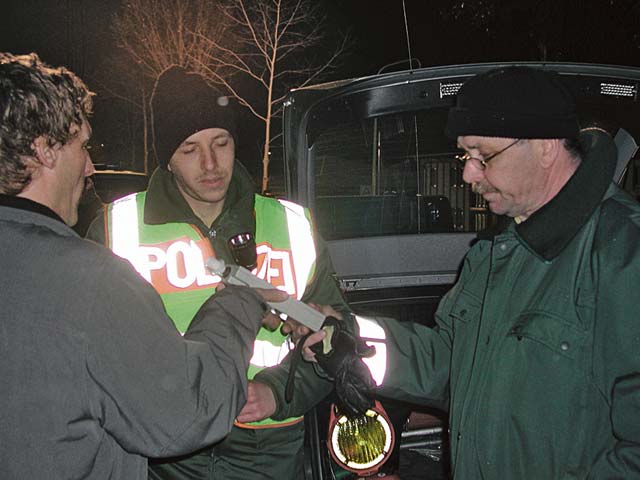
By Capt. Mathew N. Karchaske
Judge Advocate
Stuttgart Law Center
As the days grow shorter and Germany gets a little chillier, it seems like there’s always a party, fest or other excuse to drink alcohol while out with friends and family. And for those who drink, the temptation to drive your vehicle because, “It was only one or two,” or “I don’t even feel buzzed,” is always there.
But the law in Germany, on and off post, isn’t concerned with the number of drinks you’ve consumed or your buzz. The legal standard is based on alcohol concentration measured in your breath or blood. Whether you just aren’t feeling it, or if that one beer was a little bigger than what you’re used to, the limit in Germany is 0.05. For those involved in an accident, you can find yourself on the wrong end of the law with any alcohol in your system. It is no defense that you were not at fault in the accident or, absent an accident, that you operated the automobile perfectly with the alcohol in your system.
If you make the series of poor choices that leads to your arrest or detention for driving under the influence – make no mistake, the Polizei checkpoints are numerous and thorough – what happens next?
First, your command will be notified, likely followed by a reprimand in your permanent file. For active duty service members, this alone could be sufficient to trigger a potentially career-ending administrative board.
Sgt. Matthew Stevens, paralegal noncommissioned officer, 21st Theater Sustainment Command, said that it’s the driver’s responsibility to know the German DUI laws.
“Even if you are under the legal limit in the U.S., a violation of German law is sufficient to trigger a formal reprimand and other administrative consequences,” Stevens said, adding that even getting in an accident on your bicycle with alcohol in your system can result in the loss of your driving privileges.
In addition to the reprimand, if you are on active duty, you can also receive non-judicial punishment under Article 15 of the Uniform Code of Military Justice, resulting in extra duty, loss of rank, loss of pay, etc.
Additionally, even if you are not convicted of DUI in a civilian or military court, you could still lose your clearance, be relieved from your position at work, and have the DUI noted in your annual evaluation.
“If you’re going to have anything to drink, do not drive,” said Capt. Scott Goble, former trial counsel, USAG Stuttgart. “A 20€ cab ride, that’s not going to end a career; a DUI could.”
